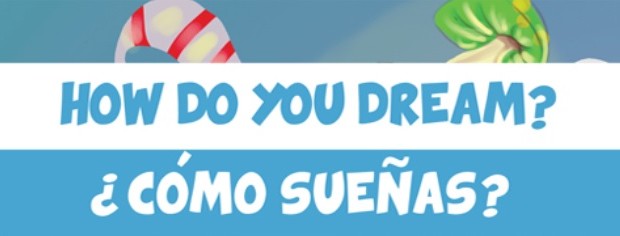What language do you dream in?

5 signs you’ve made it in a foreign language
LEARNING A FOREIGN LANGUAGE as an adult is undeniably more challenging than growing up bilingual. Since we’re no longer human sponges, the task requires loads of patience and dedication.
Whether you’re just starting out or are an advanced speaker, if any of these signs apply to you, you’re making it as a true bilingual:
1. You think and dream in the target language.
You talk to yourself, only now you do it in a foreign language. And the mundane, nonstop, everyday brain chatter is actually beneficial for your bilingual skills. Through this process you’re constantly discovering which words are lacking from your vocabulary, and can look them up immediately. The language has transcended your waking life and infiltrated your dreams.
2. You can be witty and understand jokes.
Since being funny is a skill in and of itself, major props if you manage this in a foreign language. Extra points if you can integrate double entendres, cultural references, and regional accents into your humor.
3. You prefer the foreign language.
Certain expressions are just better in foreign languages. This preference could also be emotionally driven — meaning your mother tongue inherently lacks the passion merited in certain situations (e.g., pillow talk and road rage).
4. You acquire the accompanying gestures.
Your flailing gestures began as a way to compensate for lack of bilingual prowess. But now their purpose is to embellish your already proficient verbal skills, or replace them all together. These non-verbal language skills are a bonus for all of your hard work.
In the Dominican Republic, you may be convinced that half the population is plagued by a nervous twitch. And strangely enough, it always triggered when you ask somebody a question. Finally, after careful observation of a third-party conversation, You may discover that a rapid-fire twitch of the nose is a non-verbal way to ask the question, “What?”
5. You speak a foreign language without premeditation.
…but must meditate deeply to remember your own. Some words you’ve forgotten completely, or have doubts about their existence. On the upside, via your language immersion, you’ve acquired an entire foreign noise vocabulary. It’s not like the sounds “ouch,” “umm,” and “uh-huh” are coded into our DNA. And now you’ve got the foreign equivalents down to perfection.
